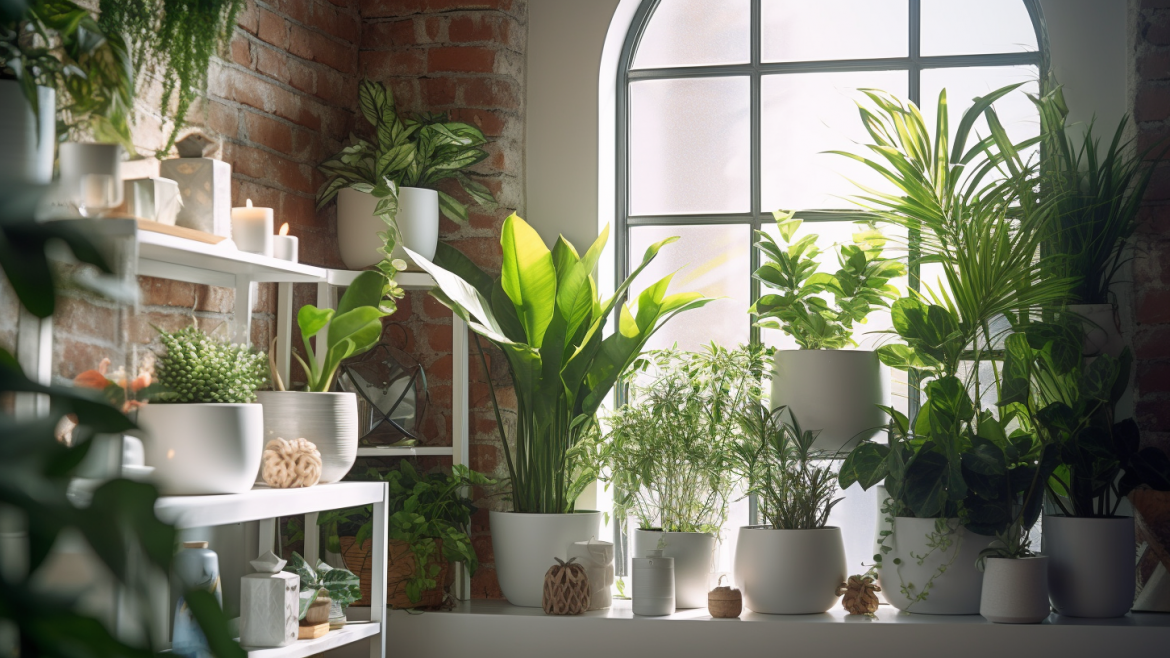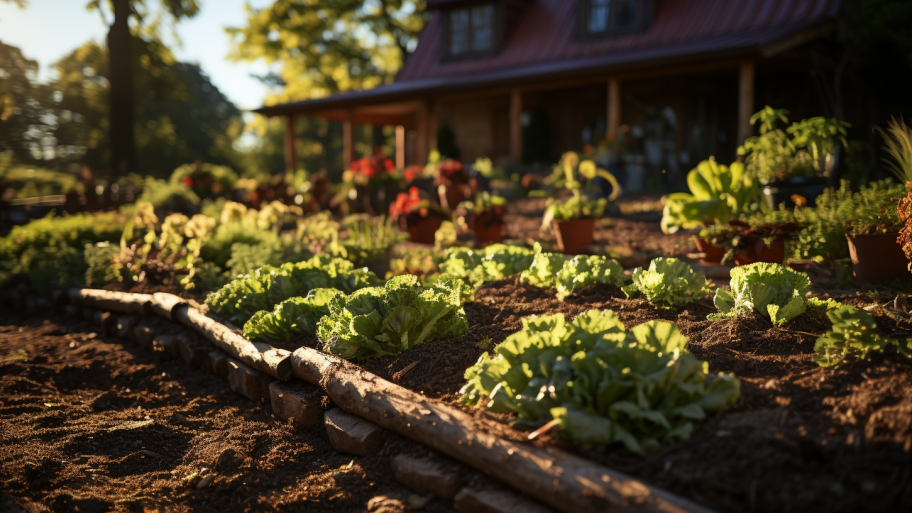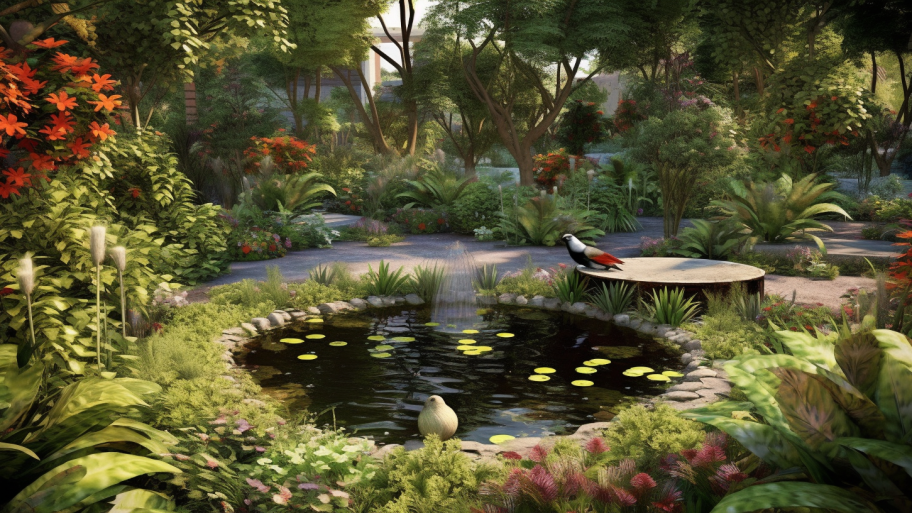The lush canopy of a tropical rainforest, the humble presence of a succulent on a windowsill, the vibrant blooms of a rose garden—each of these encounters with the plant kingdom has the power to evoke a sense of calm and connection. Yet, the influence of plants on our mental well-being goes beyond the aesthetic. Studies have shown that plants can have profound effects on our mental health, reducing stress, improving concentration, and enhancing our mood. Welcome to the world of nature’s green allies, where we will explore how certain plants can serve as companions on your journey toward mental wellness.
Plant Profiles: Meet Your Green Allies
Delving into the realm of plants that bolster mental health, we find a diverse cast of leafy characters. The first among these is the Spider Plant (Chlorophytum comosum). This resilient houseplant, with its arching green and white leaves, is a champion air purifier, known to absorb toxins like formaldehyde, thereby improving indoor air quality and contributing to a sense of well-being.
The Snake Plant (Sansevieria trifasciata), often called the “bedroom plant,” is another noteworthy green ally. It has the unique ability to release oxygen at night, promoting a better night’s sleep—an essential factor in maintaining mental health. Its striking vertical growth and patterned leaves also add a touch of nature-inspired design to your living space.
Lavender (Lavandula), a plant beloved for its soothing scent, has been used for centuries to promote relaxation and sleep. Whether used as an essential oil, enjoyed as a tea, or simply grown for its fragrant blooms, lavender is a versatile addition to any mental wellness garden.
Aloe Vera, known as the “plant of immortality” by the Ancient Egyptians, is another versatile plant renowned for its healing properties. Beyond its well-known benefits for skin health, Aloe Vera is an excellent air purifier, removing chemicals found in cleaning agents and thereby promoting a healthier living environment.
Historical Roots: Plants and Healing Traditions
The therapeutic use of plants has a long history, stretching back to the dawn of human civilization. For centuries, humans have recognized the soothing, healing effects of plants, incorporating them into traditional healing practices. From the ancient Egyptians using Aloe Vera to treat a variety of ailments, to Native American tribes using herbs like Sage and Cedar in their smudging ceremonies to cleanse and purify the air, the wisdom of using plants for mental health is deeply rooted in human history.
Nature’s Medicine: The Science Behind Plant Therapy
Recent research has provided scientific backing to these age-old practices. Studies suggest that interaction with indoor plants can reduce psychological and physiological stress. Moreover, the presence of indoor plants has been associated with improved mood, increased productivity and creativity, and enhanced concentration.
One study found that interaction with indoor plants could reduce mental fatigue and improve attention. Participants in the study who had access to indoor plants reported improved concentration and productivity, suggesting that even a small touch of greenery in our daily environment could have a significant impact on our mental well-being.
Indoor Eden vs Outdoor Oasis: Where to Grow Your Green Allies
Whether you’re nurturing a collection of indoor houseplants or tending an outdoor garden, both offer opportunities for interaction with nature and its therapeutic benefits. Indoor plants can turn your home into a tranquil sanctuary, purifying the air and creating a soothing, aesthetically pleasing environment.
However, don’t underestimate the impact of outdoor gardening. The Japanese practice of Shinrin-yoku, or “forest bathing,” has gained popularity worldwide, advocating the mental health benefits of spending time immersed in nature. Transforming your backyard into a personal oasis filled with your chosen green allies can provide a similar experience, offering a sanctuary where you can physically engage with nature, soak up some sunlight, and breathe in the fresh air.
Plant Parenting: Cultivating Relationships with Your Green Allies
Being a plant parent is about more than just keeping a plant alive—it’s about cultivating a relationship with another living being. As you tend to your plants—watering them, pruning them, observing their growth—you are engaging in a form of care that takes you out of your head and into the physical world. This can be incredibly grounding, especially in moments of stress or overwhelm.
Just as our human relationships can bring us joy, so too can our relationships with plants. There’s a certain satisfaction in seeing a plant thrive under your care, in watching a new leaf unfurl or a flower bloom. These small victories can bring a sense of accomplishment and boost your mood.
Grow With the Flow: The Mental Health Benefits of Gardening
When you engage in gardening, you’re doing more than just growing plants—you’re cultivating mindfulness. Gardening is a sensory-rich activity that encourages you to stay present, focusing on the feel of the soil, the smell of the flowers, the sound of the birds. This engagement with the present moment can help alleviate symptoms of anxiety and depression.
Moreover, gardening is a form of exercise that gets you moving and outdoors, both of which have been shown to improve mental health. A systematic review of research found that gardening can lead to significant decreases in depression and anxiety, along with increases in life satisfaction, quality of life, and sense of community.
Expert Insights: Top Tips for Choosing and Caring for Your Green Allies
When it comes to selecting plants for your wellness garden, experts suggest choosing plants that are suitable for your specific environment and level of gardening experience. Start with easy-to-care-for plants like the Spider Plant or Snake Plant, which can tolerate a variety of conditions and are less likely to succumb to common plant problems.
Maintaining plant health is essential for reaping the mental health benefits of your green allies. Regular watering, adequate sunlight, and proper pruning are key elements of plant care. However, each plant is unique, so it’s important to research the specific needs of each species in your garden.
Embracing the Challenges and Reaping the Rewards
Like any worthwhile endeavor, cultivating a wellness garden comes with its share of challenges. You may encounter pest problems, disease issues, or simply the learning curve of understanding your plants’ needs. Yet, these challenges present opportunities for learning and growth.
Overcoming these hurdles not only strengthens your gardening skills but also cultivates resilience—a key component of mental health. With patience, persistence, and a little bit of trial and error, you can foster a thriving garden that bolsters both your environment and your mental well-being.
Nurturing Your Green Allies: Essential Gardening Supplies
Before we wrap up this botanical journey, let’s take a moment to equip ourselves with the essentials for nurturing our green allies. Below are some hand-picked gardening supplies from Amazon that will help set you up for success in your wellness garden:
- The Well-Gardened Mind: The Restorative Power of Nature: This inspiring book by Sue Stuart-Smith delves into how engaging with nature can have a transformative effect on our mental health. A great read for those beginning their journey into therapeutic gardening.
- Eco-Friendly Gardening Gloves: Protect your hands with these durable, eco-friendly gardening gloves. Designed with comfort and functionality in mind, they’re perfect for any gardening task.
- Organic Potting Mix: This organic potting mix is enriched with nutrients to support healthy plant growth. Ideal for both indoor and outdoor plants.
- Ergonomic Gardening Tool Set: Make gardening a breeze with this ergonomic tool set. It includes everything you need to tend to your garden, from a trowel to a pruning shears.
- Watering Can with Long Spout: Ensure your plants receive the right amount of water with this stylish and practical watering can. Its long spout allows for precise watering, minimizing waste and preventing overwatering.
Final Thoughts: The Journey to Mental Wellness with Your Green Allies
As our journey comes to an end, we hope you have gained a deeper understanding of the powerful connection between the plant kingdom and mental wellness. But remember, the real journey begins when you start cultivating your own wellness garden and establishing relationships with your green allies.
Whether you choose to nurture a lush indoor jungle, create a serene outdoor oasis, or both, remember that the process itself is just as important as the end result. As you embark on this exciting venture, remember to take a moment to pause, breathe, and appreciate the beauty and tranquility that your green allies bring to your life.
In the words of the great naturalist John Muir, “In every walk with nature, one receives far more than he seeks.” Here’s to a journey of discovery, wellness, and a flourishing partnership with nature’s green allies.
And as you delve further into the world of therapeutic gardening, you might find our next piece, “Rooted in Mindfulness: Embracing the Art of Bonsai for Mental Health,” a fascinating read. Explore the ancient Japanese tradition of Bonsai and its meditative benefits to further enhance your journey towards mental wellness.
Happy gardening!




